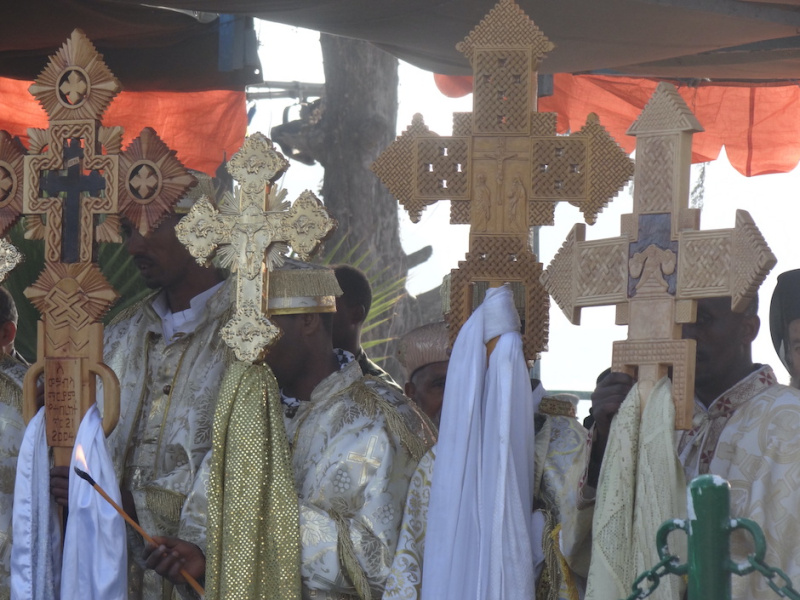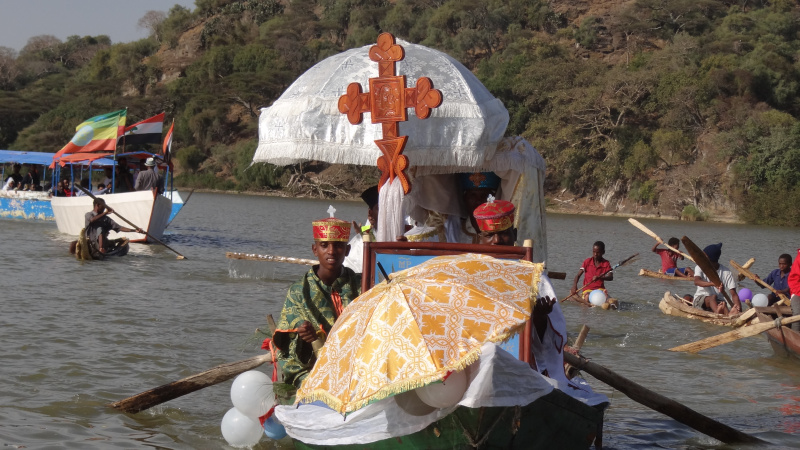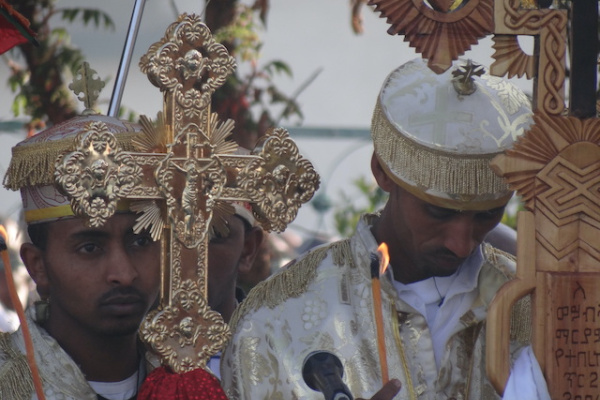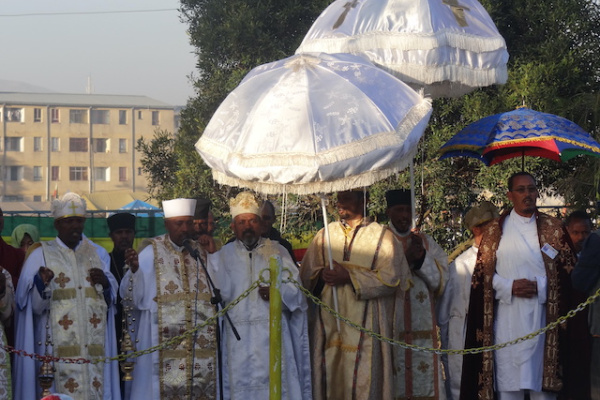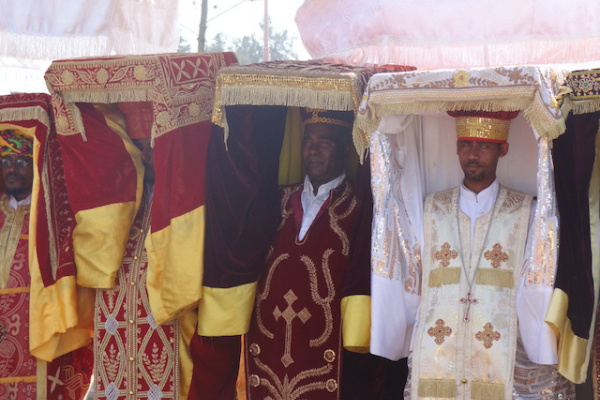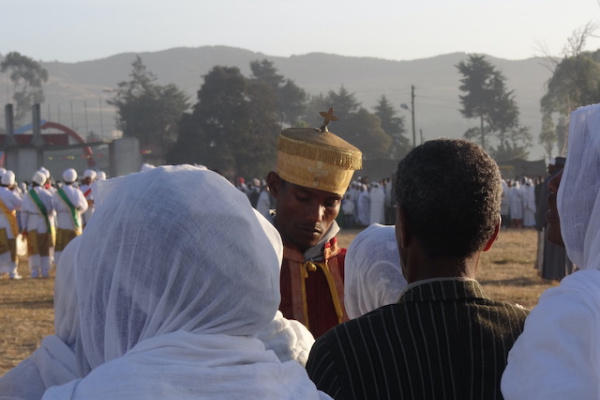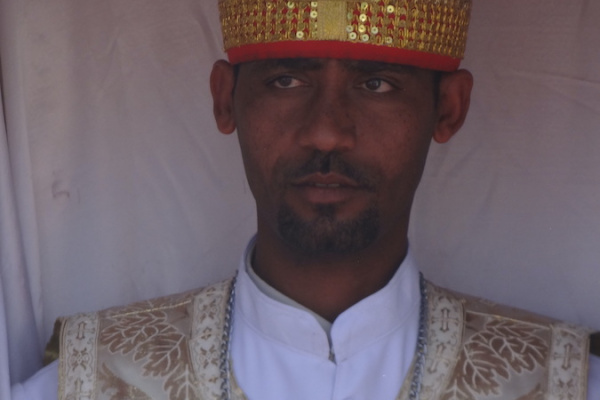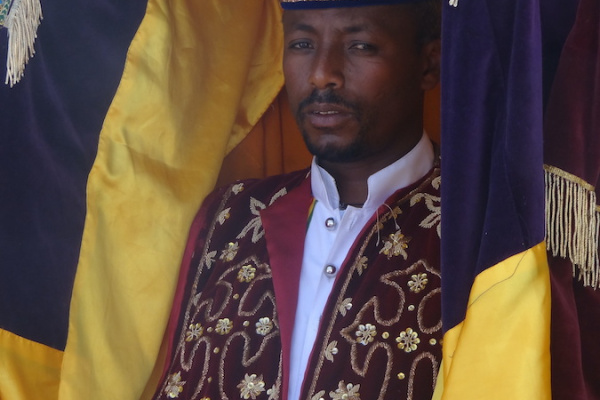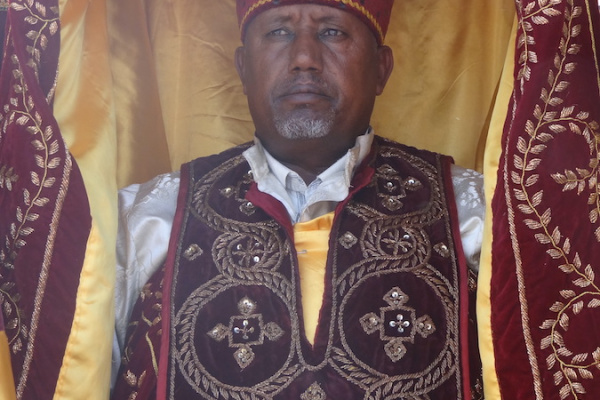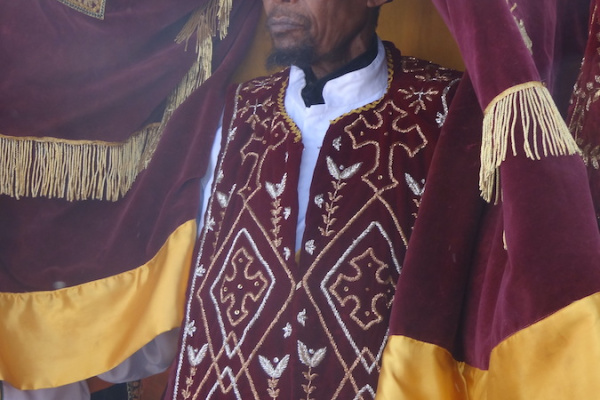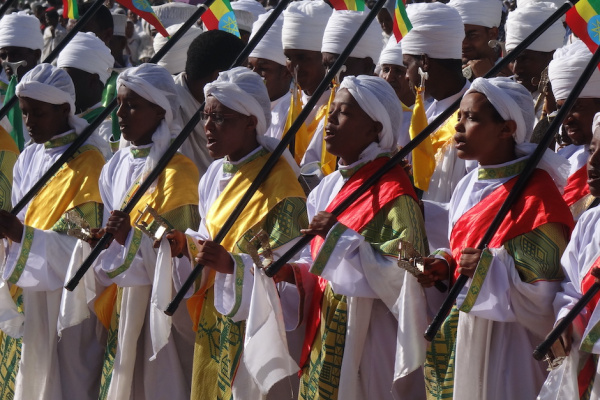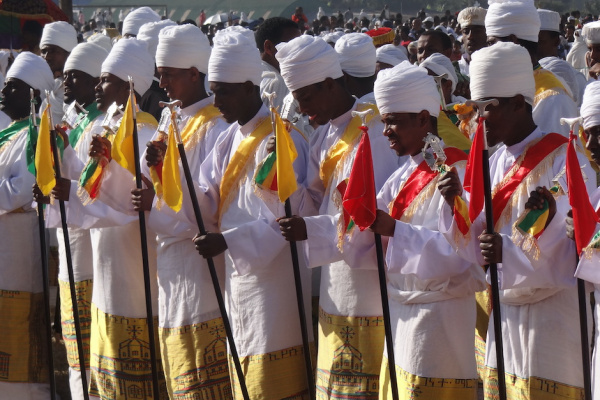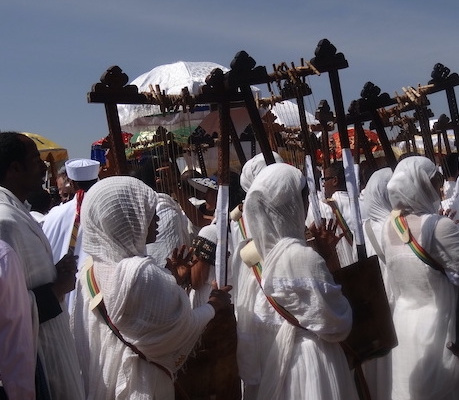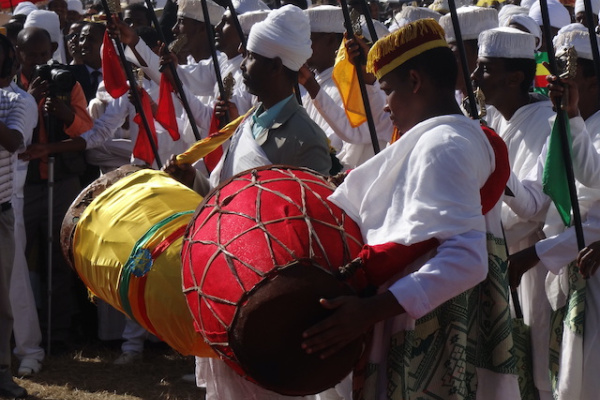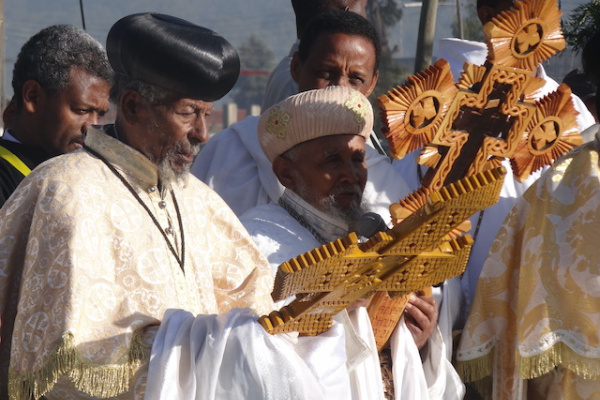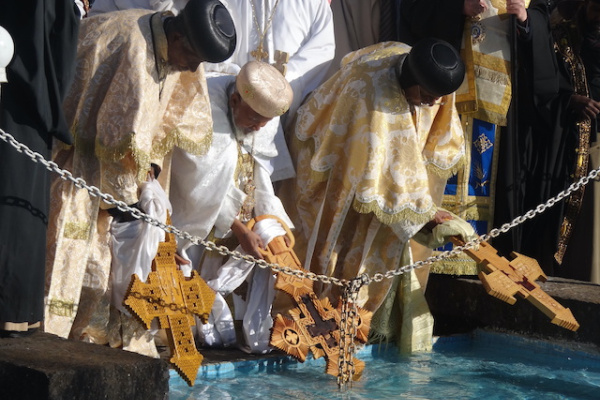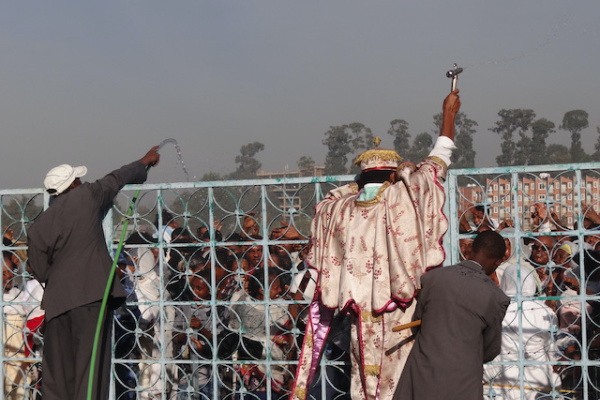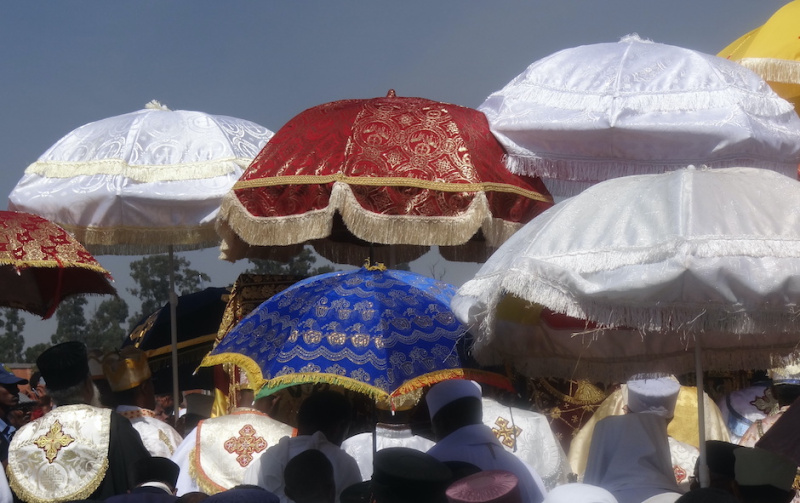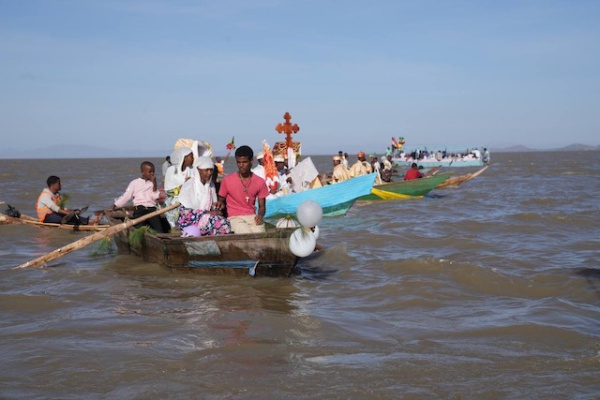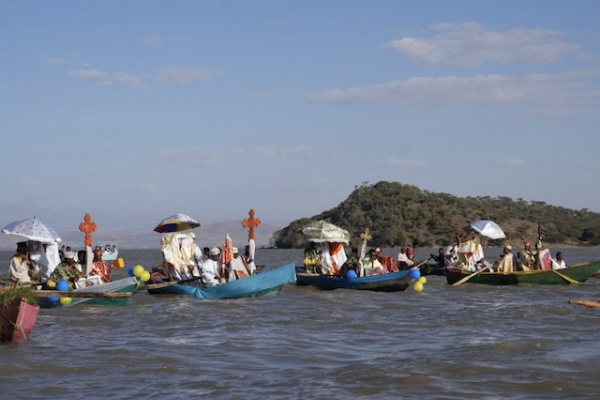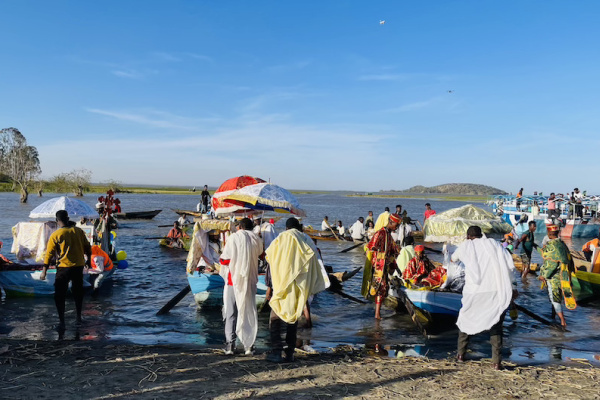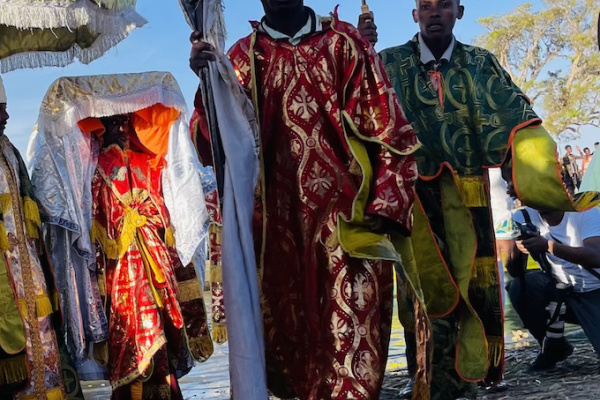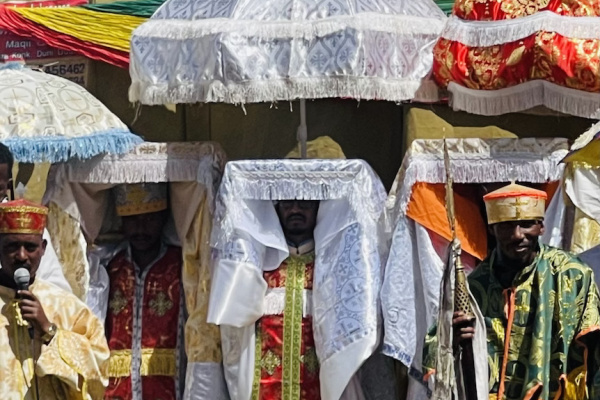Introduction
A vibrant celebration in Ethiopia
Timket, also known as Ethiopian Epiphany, is one of the most important religious holidays in Ethiopia. Celebrated by all with great fervor, this religious occasion is particularly grandiose.
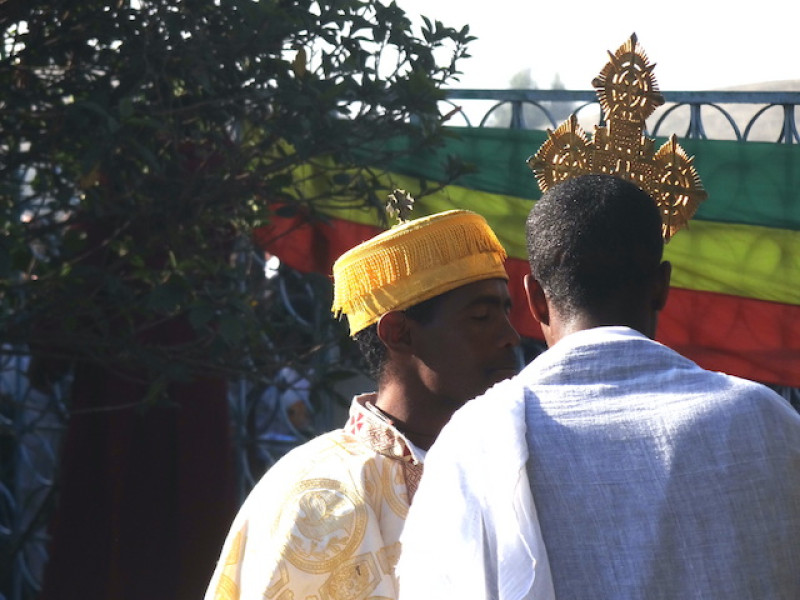
Three days of festivities
These celebrations begin just two weeks after the Ethiopian Christmas, that is to say on January 19, and last three days.
They begin the day before D-Day with spectacular and colorful processions. Then, the next morning the baptism of Christ in the Jordan by John the Baptist is commemorated. The third day is dedicated to the feast of Saint Michael, the Archangel, one of the most popular saints in Ethiopia.
The festival is marked by prayers, processions, songs and dances
But what does Timket mean?
The name “Timket” is of Ge’ez origin, an ancient Semitic language that has a major influence on Ethiopian languages. “Timket” literally means “baptism” in Ge’ez. This is the name given to the celebration of Epiphany in Ethiopia, during which the baptism of Jesus in the Jordan River is commemorated.
It should be noted that Timket is mainly known as “Ethiopian Epiphany” and used to designate this religious festival.
Timket, between religion and history
In Ethiopia, the baptism of Jesus is associated not only with a major religious event, but also with a rich cultural and historical tradition. It strengthens the link between the Christian faith and the history of the nation.
This specific connection with the baptism of Jesus in the Jordan has its origins in Scripture and Ethiopian tradition. The Ethiopian Orthodox Church, like other branches of Christianity, considers the baptism of Jesus to be a pivotal event. However, there is a particular tradition in Ethiopia that links this narrative to kingship.
Indeed, according to Ethiopian tradition, King Solomon and the Queen of Sheba (Sheba) had a son named Menelik I. He became the first emperor of Ethiopia. Menelik I is said to have visited Jerusalem, where he was baptized in the Jordan River and brought the Ark of the Covenant from Israel to Ethiopia.
This was considered an act of great significance to the Ethiopian faith, and it is incorporated into the legend of Jesus' baptism.
This story contributed to the importance of Jesus' baptism in Ethiopian tradition and its annual celebration on Timket.
This is why Timket is a religious and cultural celebration of great importance in Ethiopia.
The Tabot, replica of the Ark of the Covenant
On the eve of the big day, Ketera, the priests remove the “tabot” from each church and bless the water of the pool or river, where the celebration of the next few days will take place. The Tabot is the replica symbolizing the Ark of the Covenant containing the Ten Commandments.
To avoid being desecrated by the layman's gaze, the engraved stone or wood slab is hidden under layers of rich fabrics that the priests wear on their heads.
Prayers take place all night. Around dawn, the patriarch dips a golden cross in water symbolizing blessing. Then he sprinkles water on the assembly of the faithful in commemoration of the baptism of Christ.
After the baptism, the tabots are returned to their respective churches. The processions continue through all the cities with
Ritual practices during Timket
A distinctive feature of Timket is the blessing and purification of water. Worshipers gather near fountains or rivers to be sprinkled with holy water by priests, believing it protects them from sins.
Baptisms are considered an important rite of passage. They mark the entry of the new convert into the Christian community.
When possible, processions go to a lake or river. There, the faithful baptize the new converts.
Unity around Timket
Timket is a joyful and festive holiday. It is an opportunity for Ethiopian Christians to celebrate their faith and their identity.
Every man, woman and child appears resplendent for this three-day celebration.
Dressed in dazzling white, the inhabitants offer a spectacular contrast with the joyful colors of the ceremony, the velvets and satins of the priests' cassocks and the sequined velvet umbrellas.
The holiday is celebrated throughout the country, but the main celebrations take place in Addis Ababa, the capital, and Gondar, a historic city. Of course the emblematic Lalibela always attracts a lot of people for this occasion.
Timket in historic Gondar
Every year, thousands of faithful Ethiopian Orthodox Christians gather in Gondar to participate in this celebration.
The highlight of Timket in Gondar is the recreation of the baptism of Jesus. The priests carry the Ark of the Covenant and place it in a basin of sacred water, symbolizing the Jordan, the baths of King Fasiladas. The faithful gather to be blessed and purified by this water, believing that it will protect them from sins and bring them divine grace
Many devotees jump fully clothed into the water to renew their vows.
On this occasion, the city is decorated with fabrics and flags like throughout the country. Traditional music and dances punctuate the streets, creating a unique festive atmosphere. Local markets offer a variety of traditional dishes, giving visitors the opportunity to taste delicious Ethiopian cuisine.
More intimate Timket on Lakes Tana and Ziway
Timket is also celebrated on the lakes. Lake Tana in Bhardar and Lake Ziway in the south of the country remain an original and more intimate and therefore even more authentic way of experiencing Timket.
The priests, always dressed in their finery, carry crosses and tabots. They sit in small boats and navigate the waters. They are followed by small boats of faithful or slightly larger boats. The songs punctuate these timeless moments.
What could be more authentic than sailing on the waters when celebrating the baptism of Christ in the Jordan?
Indeed, it remains an experience to live because it is different.
A party for everyone
Timket is a celebration that unites faith, tradition and community. It is a time when Ethiopians come together to strengthen their spiritual and cultural ties. A moment to share their hospitality and rich heritage with the rest of the world.
Whether you are a believer or not, practicing or not and whatever your faith and religion, Timket leaves no one indifferent.
This celebration is an unforgettable experience for travelers who are lucky enough to attend it. It allows you to immerse yourself in the heart of Ethiopian culture and its unique Orthodox faith.
To not miss any of the exceptional events, follow us on Facebook and Instagram
Book your trip for Timket.


